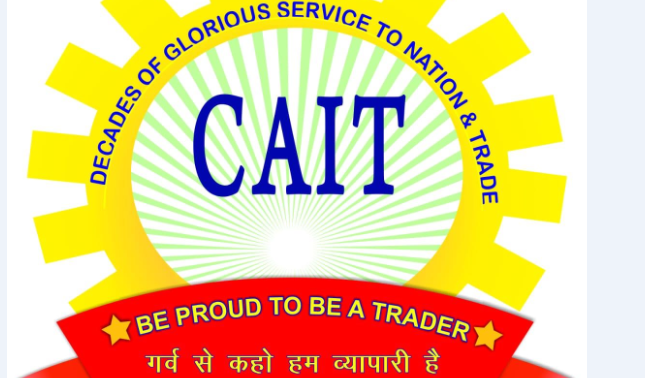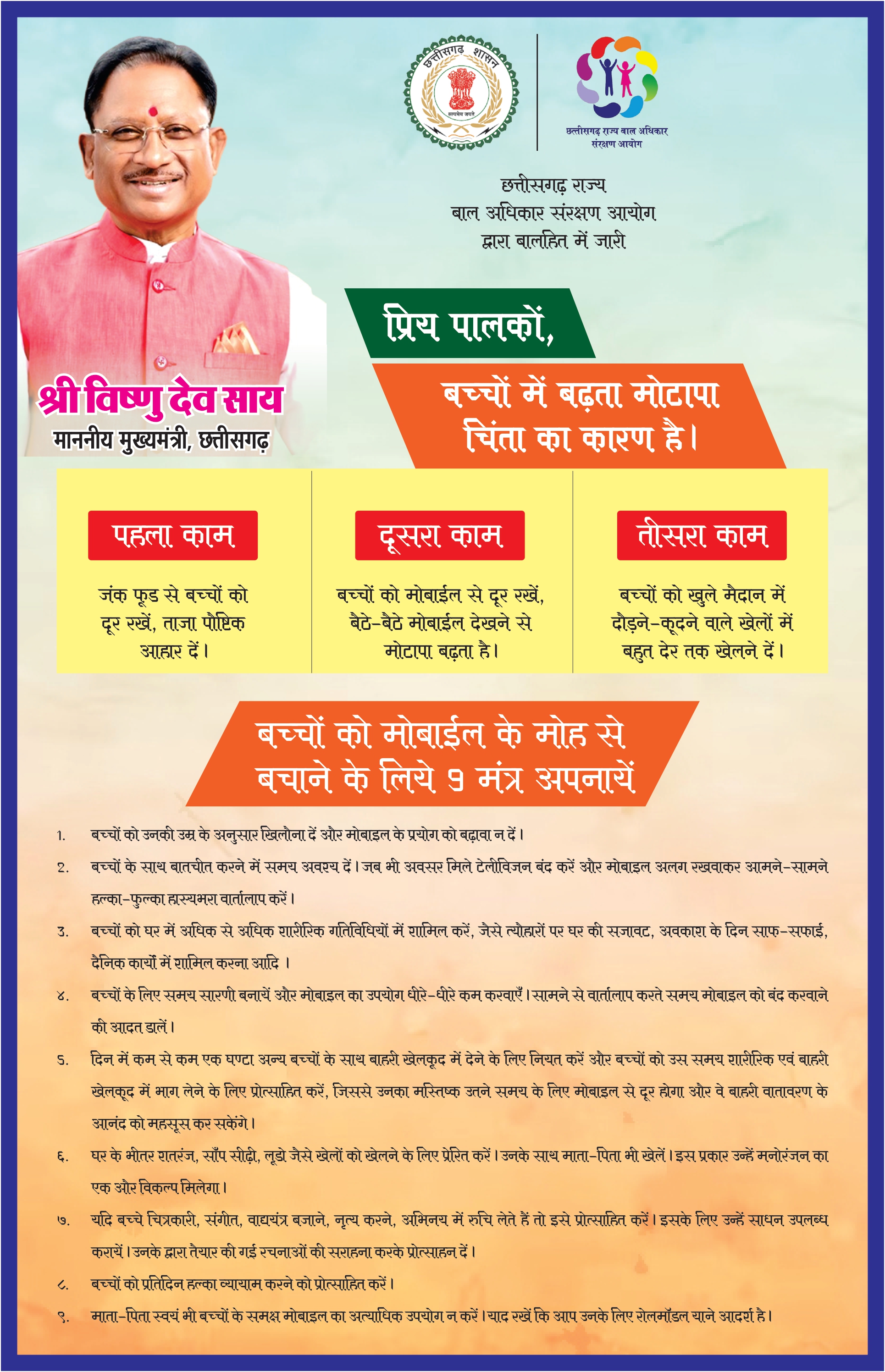Raipur (The States. news) CAIT National Vice President Amar Parwani, chairman Magelal Maloo , Amar Gidwani State President Jitendra Doshi , States Working President Vikram Singh Deo, Parmanand Jain , Vashu Makhija, state General secretary Suriender singh , State Working General secretary Bharat Jain, State Treasure Ajay Agrawal and state Midia Prabhari Sanjay Choubey informed In a communication sent to Union Commerce Minister Shri Piyush Goyal today, the Confederation of All India Traders (CAIT) has strongly urged for roll out of an e-commerce policy and formation of a unified Cyber REgulatory Authority. In a recently concluded two days National Conference of Trade Leaders at New Delhi which was attended by 152 top trade leaders while attending the two days meeting have expressed grave concern over continuous mal-practices and violation of laws and rules by various foreign funded companies in every sector of trade and services despite several warnings given by Shri Goyal on various national and international forums in past two years. Being aggrieved with the callous attitude of e-commerce companies, the two days conference passed a unanimous resolution calling upon Shri Goyal to roll out a robust e-commerce policy and a unified Cyber Regulatory Authority. The CAIT has sent a similar communication to Mr. Ashwini Vaishnav, Union Minister for Electronics & IT also.
CAIT National Vice President Mr. Amar Parwani & State President Mr. Jitendra Doshi informed In its resolution it is said that the Internet and technology have revolutionized the way people operate and interact on an everyday basis. It has given impetus to traditional businesses, led to the emergence of new forms of businesses and business practices, and empower citizens by making information affordable, and accessible to all. Increased Internet penetration and adoption of technology at all levels of society coupled with rapid digitization across sectors have caused large-scale disruption in the society and economy and brought in its wake new andun fore seen issues and challenges. Redressal of these emerging and unforeseen issues, therefore, becomes crucial and requires a nuanced understanding and technical evaluation of various elements of the digital economy, including data, consumer behaviour, emerging technologies, etc., all of which serve as a building block for the digital ecosystem. In this regard, it becomes imperative that a streamlined and holistic approach to the regulation of the digital ecosystem is adopted at the highest level that helps address cross-cutting issues with cross-sectoral implications relating to the development, use, and adoption of technology.
Mr. Parwani & Mr. Doshi informed The Resolution further stated that currently, India has a legacy regulatory architecture across sectors wherein the subject-matter jurisdiction of each such regulator has evolved over time in a fragmented manner to address present concerns. This has left a significant portion of emerging technologies, products, services, online behaviour, business models, and practices to operate in a regulatory vacuum on account of either the issues having cross-cutting implications across sectors or the issues currently not falling within the domain of any regulator. Both these instances have also been a root cause of conflicts between regulators and have led to market uncertainty which has inhibited innovation and growth. This fragmented approach has also impeded the government’s ability to fully and holistically capture the risks associated with any product, service, business model and/or business practice in the digital ecosystem and respond to it in a speedy manner. Further, various contemporary legislations and policies also envisage the setting up of narrowly tailored regulators. All of which is cumulatively furthering the government’s ability to respond to the rapidly evolving challenges and needs of the digital ecosystem in a holistic and effective manner. Mr. Parwani & Mr. Doshi said It was resolved that therefore, to mitigate these challenges, ensure that the dynamic nature of the Internet and technology and the innovation that it brings with it, and to deal with the diverse impacts and outcomes that arise out of the same across sectors, there is a need for an effective, coordinated and unified regulatory intervention by a multifaceted, specialized,dedicated, and responsive regulatory architecture. In this regard, a unified Cyber Regulatory Authority that straddles across areas such as data, development, use, and adoption of technology, consumer welfare, online behaviour, etc is the need of the hour. Such a regulatory authority must be supported by a dedicated, specialized, and responsive investigatory and adjudicatory mechanism. Mr. Parwani & Mr. Doshi informed The resolution also referred to similar unified regulator which was proposed in 2013 for the financial sector in India by the Financial Sector Legislative Reforms Commission. The French Digital Council, United Kingdom’s Centre for Data Ethics and Innovation; and Singapore’s Info-communications Media Development Authority may serve as a useful reference in establishing such a unified, dedicated, and expert architecturefor the digital ecosystem. This Conference of the trade leaders, therefore, urged Union Minister for Commerce Shri Piyush Goyal to roll out a robust and well defined e-commerce policy and constitution of a unified and empowered Cyber Regulatory Authority to regulate and monitor not only e-commerce trade but also the issues incidental to e-commerce. The Conference also decided to take up the issue with Union Minister for Electronics and Information Technology Shri Ashwini Vaishnav as well .











